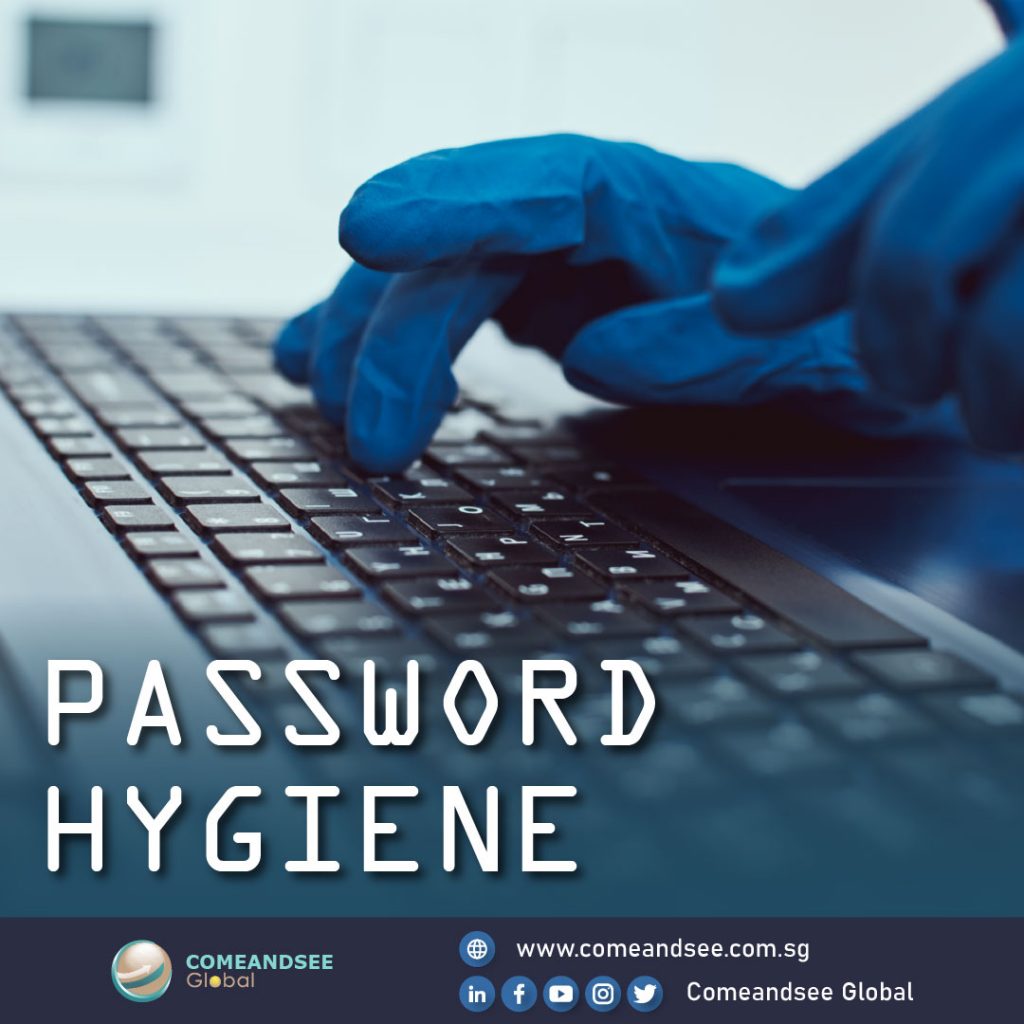
Did you know that over 80% of data breaches are due to poor password security? In 2021, The Personal Data Protection Commission (PDPC) stated that most data breaches are mostly caused by human error and malicious attacks which involved in compromised personal data such as personal identity numbers and financial details This should serve as a warning as login credentials especially passwords are targets for cybercriminals to access plenty of information and use it for malicious purposes.
Passwords are the first line of defense in protecting your data and credentials from cybercriminals. Therefore, it is important to ensure that our passwords are well secured by maintaining good password management practice to ward of potential hackers and apply this not only in our work but also in our bank accounts and social media accounts.
Let’s take a look at some tips to develop good password habits:
1. Create a strong, long and unique passphrase
In general, strong passwords are considered over eight characters in length and made up of both upper and lowercase letters, numbers, and symbols such as 1h@dCh1ck3nr1cE@t12PM. The longer and unique it is, the more predictions will be needed for hackers to crack and break into systems. It is also important not to add personal information in your passwords.
2. Use a different password for every account
Just as you would install a different lock on different house doors, you should also use a different password for every account. In case of a hacker trying to gain access to one of your accounts, having a different password would not necessarily lead to your other accounts getting compromised.
3. Use two-factor authentication (2FA)
Two-factor authentication (2FA) provides an added layer of security and a barrier for potential attackers attempting to crack your password. 2FA is when you input the correct username and password, you will need a second code that may come from either text messages or email to ensure the authorised user is the one logging in.
4. Use a password manager
With the unique passwords for each account, so how can we really remember all of them? Using a password manager is one of the best ways to store all those randomly generated passwords but be sure your master password is unique and complex enough that it cannot be guessed or easily cracked. Find a password manager that can help you store encrypted passwords, thus ensuring it is protected.
5. Never share your password with others
Sharing a password that has stored information is like unlocking the front door to your house and leaving it wide open. By granting anyone else your user credentials, you are compromising your account security, because from the moment they have access, you do not know what they are going to do with your access details. Hence, you should never give out your password to anyone – not even someone you trust.
Practicing good password hygiene is a security measure that we must take to protect against cyber threats. If you would like to learn more on other important best practices in cybersecurity, you can check out our ‘Cybersecurity’ courses. Click here to go to our learning portal now!
Reference:
[1] Verizon Data Breach Investigations Report, 2020.
[2] Data breach alerts in S’pore up on new reporting rules, more cyber threats: Experts